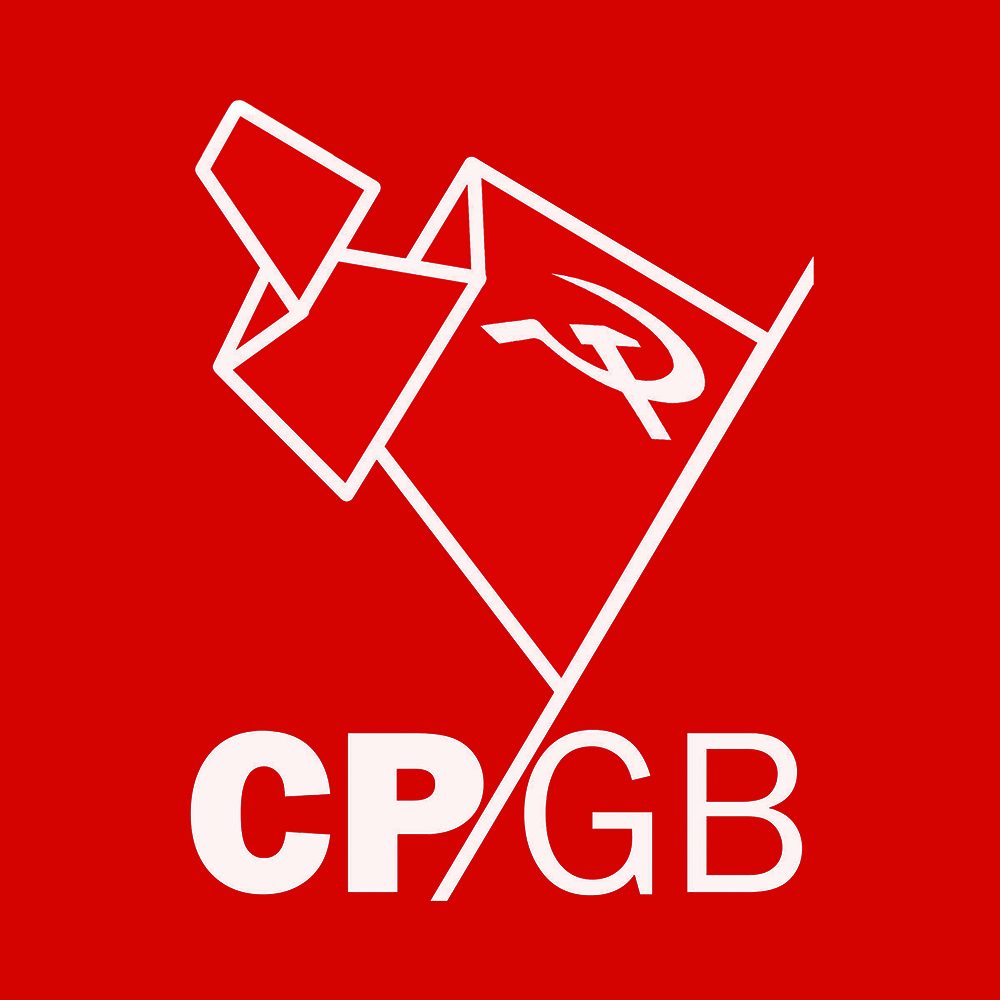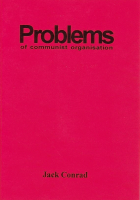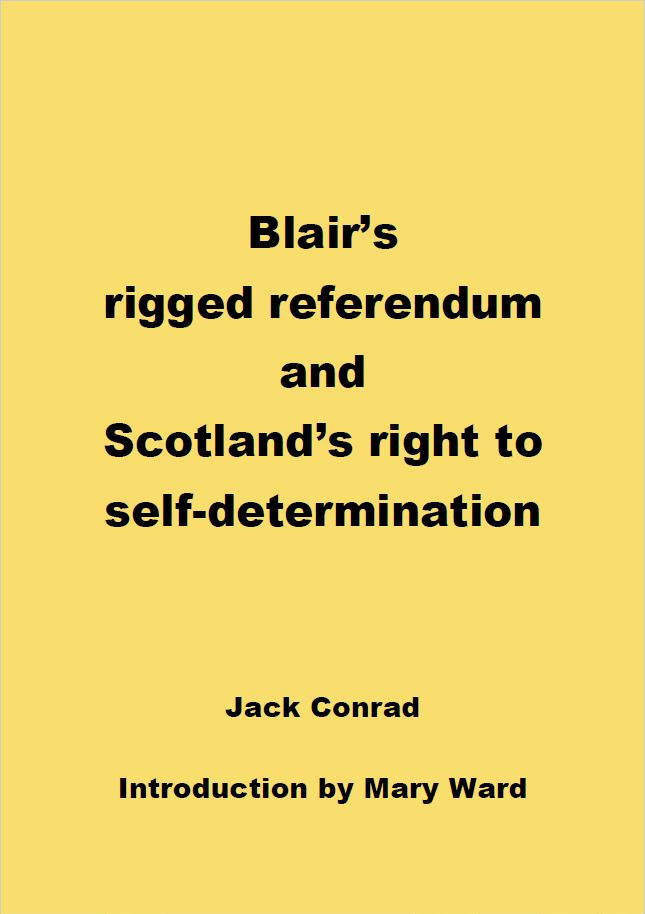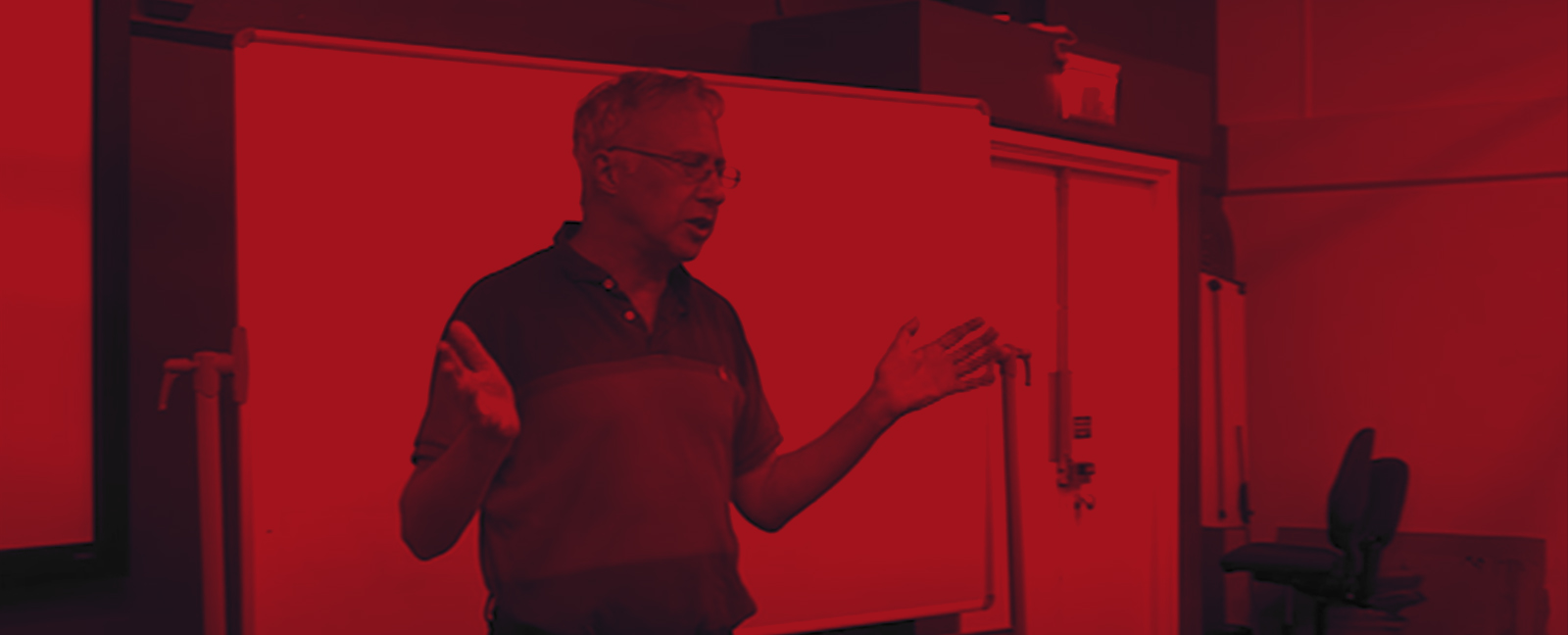
Which Road? (1991) | .pdf
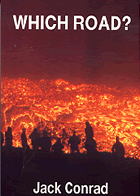 Without a Communist Party the working class can never liberate itself. And without a communist programme there can be no genuine Communist Party.
Without a Communist Party the working class can never liberate itself. And without a communist programme there can be no genuine Communist Party.
The roots of the collapse of the bureaucratic socialist states of Eastern Europe and the Soviet Union and the liquidation of the ‘official’ world communist movement can be seen in those parties’ abandonment of Marxism. This was not the fault of one person, or the break-down in collective intellect.
The programmes of ‘official communism’ reflected – were designed to serve – those in the workers’ movement who had no interest in revolution. In this book Jack Conrad deals with the reformist programmes of various strands of opportunism in Britain and provides the preliminary groundwork necessary for the drawing up of the draft programme around which the struggle to reforge the Communist Party of Great Britain will be focused.
From October to August (1992) | .pdf
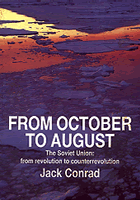 The August 1991 counterrevolution unleashed an unprecendented barrage of bourgeois triumphalism. The bourgeoisie think they will now last forever. They want, they need, to believe that they have beaten, not simply this or that Communist Party, this or that revolution. No, they want to believe that the collapse of ‘official communism’ is the organisational expression of capitalism’s final victory over its own mortality.
The August 1991 counterrevolution unleashed an unprecendented barrage of bourgeois triumphalism. The bourgeoisie think they will now last forever. They want, they need, to believe that they have beaten, not simply this or that Communist Party, this or that revolution. No, they want to believe that the collapse of ‘official communism’ is the organisational expression of capitalism’s final victory over its own mortality.
Jack Conrad charts the rise and demise of the Soviet Union and delivers an effective answer to this reactionary crap. It shows how Marxists clearly warned of the counterrevolutionary danger of Gorbachev and the forces he was unleashing. As such it is an important contribution to the fight to build a Party capable of leading new Octobers, of turning the world upside down once again.
In the Enemy Camp (1993) | .pdf
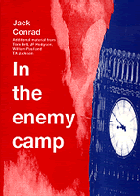 Why do communists stand in elections?
Why do communists stand in elections?
As Jack Conrad’s book comprehensively shows, Marxists have always viewed parliamentary democracy as a sham. So why does the Communist Party of Great Britain – in the tradition of Lenin’s Communist International – think that standing in elections is “obligatory”? Does it stand for votes, for publicity or propaganda?
In the enemy camp answers these questions. It examines the theory and practice of communist electoral work – from Russia’s Bolsheviks and Mensheviks to the Communist Party’s campaign in the April 1992 general election in Britain. This book outlines the challenge communism presents to ‘bourgeois democracy’.
Problems of communist organisation (1993) | .pdf
In 1993 members of the CPGB were involved in a fierce battle over the question of democratic centralism. Following from this, discussions at Party schools and meetings developed the question further, involving other groups.
In Problems of communist organisation Jack Conrad raises the call for all communists to be united through democratic centralism in one Party.
we publish the views of both sides – the majority and the minority – in the controversy because the struggle contains lessons for all class conscious workers.
Blair’s rigged referendum and Scotland’s right to self-determination (1997) | .pdf
In this pamphlet, Jack Conrad offers a serious critique of the Scottish Socialist Alliance’s decision to support a double ‘yes’ vote in the September 11 1997 referendum.
He makes it clear why the Alliance’s leadership, in the form of Scottish Militant Labour, is unable to take up the challenge of leading the working class away from national reformism towards revolutionary politics around the national question in Scotland.
Introduction by Mary Ward
Towards a Socialist Alliance Party (2001) | .pdf, buy
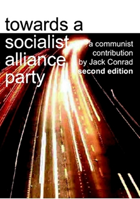 Some comrades in the Socialist Alliance say we should settle for a loose conglomeration of leftwing groups and local campaigns. For these comrades the word ‘party’, when it comes to the Socialist Alliance, is an anathema. It is as if they were anarchists. Of course such comrades already their own ‘party’.
Some comrades in the Socialist Alliance say we should settle for a loose conglomeration of leftwing groups and local campaigns. For these comrades the word ‘party’, when it comes to the Socialist Alliance, is an anathema. It is as if they were anarchists. Of course such comrades already their own ‘party’.
Jack Conrad argues, however, that there is no party. They are groups or, worse, sects. Members who disagree with the described ‘line’ are expected to gag themselves in public. Either that or face expulsion.
Europe: The Challenge of Continental Unity (2002) | .pdf, buy
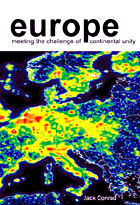 Many on the left view Europe, the European Union and the euro with trepidation. Joining the euro zone will mean the end of Britain’s sovereignty and the rule of an unaccountable European Central Bank. The euro is supposedly the nuclear weapon of those who want an EU capitalist superstate. If the euro replaces the pound, working class strength will be severely reduced – some say to a vanishing point. This view owes more to nationalism than internationalism.
Many on the left view Europe, the European Union and the euro with trepidation. Joining the euro zone will mean the end of Britain’s sovereignty and the rule of an unaccountable European Central Bank. The euro is supposedly the nuclear weapon of those who want an EU capitalist superstate. If the euro replaces the pound, working class strength will be severely reduced – some say to a vanishing point. This view owes more to nationalism than internationalism.
There is another tradition. That of Karl Marx, Fredrick Engels, Karl Kautsky, Vladimir Lenin, Leon Trotsky and Rosa Luxemburg. They viewed the voluntary union of peoples, and especially the working class, into the largest state units as progressive. At the urging of Trotsky, the Communist International called for a United Socialist States of Europe against the Balkanisation imposed upon the ruined continent after World War I.
Organisation at the highest level and unity in action are vital. An important step in the direction of a Communist Party of the European Union would be a European Socialist Alliance.
Remaking Europe (2004) | .pdf, buy
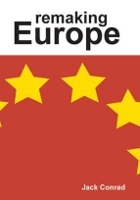 European unity is one of the biggest, most complex and bitterly contested political issues of the day – there are no easy ‘yes’ or ‘no’ answers. Europe is an enigma. We are told it is a nascent military threat and a guarantor against war; a wide field of struggle and a remote bureaucratic machine; a black hole of patronage, subsidy and corruption and a global haven of stability, The 25 heads of government propose enshrining the virtues of neo-liberal capitalism, the EU’s quasi-democratic institutions and reformist palliatives. We need our own inspiring, and thoroughly practical, alternative.
European unity is one of the biggest, most complex and bitterly contested political issues of the day – there are no easy ‘yes’ or ‘no’ answers. Europe is an enigma. We are told it is a nascent military threat and a guarantor against war; a wide field of struggle and a remote bureaucratic machine; a black hole of patronage, subsidy and corruption and a global haven of stability, The 25 heads of government propose enshrining the virtues of neo-liberal capitalism, the EU’s quasi-democratic institutions and reformist palliatives. We need our own inspiring, and thoroughly practical, alternative.
In this book, Jack Conrad argues that the working class can and must establish a ‘third’, fully articulated, camp with a view to winning our own, social, Europe. A Europe stamped by the working class, which is ready for its domination and rapid emancipatory extension.
Fantastic Reality (2012) | .pdf, .epub, buy
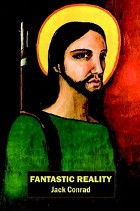 Religion, as defined by Marxism, is fantastic reality. Fantastic, not in the trite sense that the claims religion makes about existence are verifiably untrue, unreal or baseless, but in the sense that nature and society are reflected in exaggerated form, as leaping shadows, as symbols or inversions.
Religion, as defined by Marxism, is fantastic reality. Fantastic, not in the trite sense that the claims religion makes about existence are verifiably untrue, unreal or baseless, but in the sense that nature and society are reflected in exaggerated form, as leaping shadows, as symbols or inversions.
So religion should not be dismissed as mere false consciousness. Religion reflects something of the real; but, as Jack Conrad’s book shows, there is even more to it than that. Religious ideas are not only determined by reality; they can themselves become materially effective. The ideas people have in their heads – especially when mediated through institutions such as churches, mosques and temples – no matter how wrapped up in the godly and seemingly unrelated to the corporeal world, impact on their surroundings.
“Jack Conrad writes in the best Marxist tradition. Following the insights of Marx and Engels, he analyses religion as a socially conditioned individual outlook, a social ideology that reflects reality in fantastic form, and an oppressive institution of social and political control.” – Moshé Machover

The Little Red Climate-Book (2023) | .pdf, buy
Anthropogenic climate change represents the most acute danger to human civilisation, perhaps human life itself. Well, that and generalised nuclear exchange. Only if truly revolutionary measures are taken do we stand a chance of surviving.
Yet governments, whether of the conservative, liberal or reformist type, for all their eco-posturing, are in thrall to accumulation for the sake of accumulation, production for the sake of production. The mark of the beast is M-C-M’.
Even if we take seriously the solemn commitments made in Paris 2015, of reducing carbon dioxide emissions to net zero by 2050 – and only a fool would – it is probably too late. The opportunity to limit global warming to well below 2°C above pre-industrial levels, and “preferably” to just 1.5°C, has, in all likelihood, already passed.
Emissions of greenhouse gases have continued apace. The world is giddily, crazily, on course to exceed 1.5°C: the “central estimate” being 2030-32. The 2°C threshold is expected to be passed between 2034 and 2052. The danger of a 4°C temperature rise might be avoided, but only if we act quickly and decisively.
A 4°C world would see the polar ice caps melt, sea levels head for a 10-metre rise, a thawing of Arctic circle permafrost and a feedback surge in global temperatures. Mass extinction of flora and fauna inevitably follows. The North American wheat belt turns to desert. States collapse. Millions are displaced. Countless cities are inundated: Alexandria, Dhaka, Jakarta, Bangkok, Kolkata, Miami, Houston, New Orleans, Rotterdam, Rio de Janeiro, Osaka and Shanghai lie top of the list. Along with much of Europe and western Asia, Britain eventually fragments into a series of islands.
Protests in the name of Green New Deal, Just Stop Oil, Insulate Britain, Extinction Rebellion, Fridays for Future are well intended, but woefully inadequate. Nor are strikes, occupations or sabotage anywhere enough. The politics of protest must be superseded by the politics of power.
Three things immediately follow.
1. Communists must present their differences with others, including on the left, when it comes to dealing with the climate crisis.
2. Communists must explain why preventing climate change becoming catastrophic social collapse requires system change.
3. Communists must show what sort of organisation, what sort of political programme, what sort of government is needed if we are to bring about system change.
That is why The Little Red Climate Book has been published.
